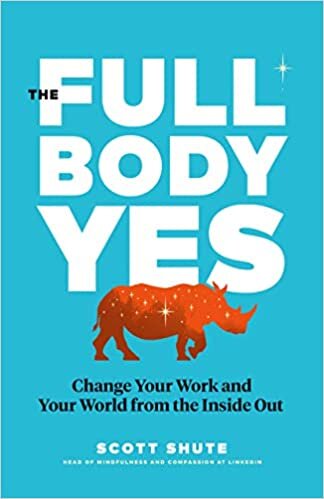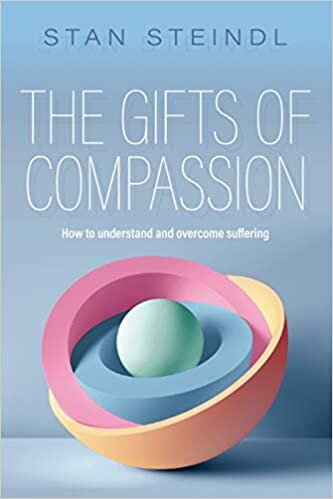Five Summer Reads for Compassionate Leaders
This group of five books offers a wide range of choices for compassionate leaders looking for new inspiration this summer. From highly anticipated books written by recognized leaders in self-compassion and compassion in the workplace, to practice- and growth-oriented books from professors in the UK and Australia, to a searing, creative account of the issues of colonialism in public health. Read one. Read them all. You can’t go wrong with any of these.
Fierce Self-Compassion: How Women Can Harness Kindness to Speak Up, Claim Their Power, and Thrive
by Kristin Neff
For twenty years, Kristin Neff has been a powerful advocate for self-compassion. Her 2003 research paper, “Self-Compassion: An Alternative Conceptualization of a Healthy Attitude Toward Oneself” gave birth to the research field of self-compassion, a field which now has over 3,500 published studies and counting. In 2011, her first book, Self-Compassion: The Proven Power of Being Kind to Yourself, helped the field grow to adolescence by bringing the significant body of academic research to the public. Now, with Fierce Self-Compassion: How Women Can Harness Kindness to Speak Up, Claim Their Power, and Thrive, Neff brings our understanding of self-compassion into a new maturity.
Neff deftly combines the science and the wisdom of self-compassion to help us unlock our full potential. Although the book’s title expresses that it shows how women can harness the power of fierce self-compassion, this book should be read by everyone. We all have a part to play in helping women harness their fierce self-compassion powers, and everyone can deepen their understanding of the value of a fully integrated self-compassion in their life.
The Full Body Yes
by Scott Shute
Most of us distinguish the “me at work” from the “me in the rest of life.” It’s an understandable and pervasive response to our conditioning, systems, and culture. Yet the reality is that we are still one whole person, regardless of where we are operating at any given moment. COVID has hastened the timeline for more people to accept this fundamental truth.
In The Full Body Yes, Scott Shute takes us on an intimate tour of his personal life and remarkable corporate career that helps all of us appreciate how to live an integrated life of happiness, purpose, and service. He shows us by example how to love ourselves, love others, and love all of life through the lens of compassion. Along the way, we laugh and cry, feel his pain and joy, and in so doing, accept more of our own.
Scott gives us permission to explore the difficult terrain of our inner lives and demonstrates why this deep internal awareness is the key to navigate our external journey with contentment and ease. In The Full Body Yes, we learn to embrace our common humanity and compassion by wholeheartedly appreciating the gifts of this beautiful, imperfect, and messy life. As one of the few business leaders that walks the walk, Scott skillfully asserts that we can all change our work and world from the inside out. We couldn’t agree more!
If you’re interested, Scott will be our featured guest and practice leader for the next Global Compassion Community Gathering. We invite you to join this free event on July 15 by registering here.
The Gifts of Compassion: How to understand and overcome suffering
by Stan Steindl
Dr. Stan Steindl, a clinical psychologist and leading academic researcher in the area of compassion, uses his abundant gifts generously in The Gifts of Compassion. Steindl’s writing is both accessible and particularly comforting when addressing challenging topics, reflective of the understanding style of a skilled clinical psychologist.
Steindl’s particular gift comes in holding together as one the frequent perceived tensions that arise in compassion work: the strength and courage required for compassionate action and the kindness and tenderness necessary to acknowledge another’s suffering, or non-judgmental awareness coupled with the judgment necessary to know how to act, for example.
The book has a companion workbook (purchased separately) allowing the reader to journal as they journey along a path of growing self-compassion and compassionate action.
Why Mindfulness Is Not Enough: Unlocking Compassion with Equanimity
by Dr. Joey Weber
Mindfulness has gotten a bad rap in corporate America. As soon as the MBAs got a hold of it as a tool to increase productivity, it became yet another tool for extraction, the story goes. In Why Mindfulness is Not Enough, Dr. Joey Weber brings the critical piece of equanimity to the mindfulness equation, and in so doing shows how to transform the “McMindfulness” that some mindfulness efforts in the Western world appear to have become.
Equanimity is “the non-reactivity of one’s own discrimination faculties ,” or the ability to avoid our tendency to categorize everything into likes, dislikes, and neutralities. Weber offers seven steps toward greater equanimity. Engagement with these steps offers the promise of a more understanding and compassionate approach to the world. The paradox of non-judgment is that it is hard to exercise it without judgment. Why Mindfulness is Not Enough shows how to use equanimity to observe oneself and the world non-judgmentally, and then use that observation to act compassionately and wisely.
Epidemic Illusions: On the Coloniality of Global Public Health
by Eugene T. Richardson
In this searing indictment of global public health, and the many negative manifestations of altruism run amok, Eugene Richardson presents a compelling case of how racism is the cause for differential healthcare outcomes and the unequal toll of disease around the world. Richardson describes his presentation style as “carnivalization,” a style that combines satire, sarcasm, and serious academic research as a means to combat illusions that have become accepted truths. It is one part Jonathan Swift, one part Jon Stewart, and one part Robespierre.
The book opens with a privileged, oppressive colonizer having a psychedelic moment where he gains an understanding of the interconnectedness of all humanity. The book proceeds to eviscerate epidemiologists and global health professionals for the tragic, costly oppression that arises from the illusion of their separateness. Epidemic Illusions’ effectiveness is undercut, however, by the narrator’s constant elevation of themself above the harshly judged bureaucrats and academics in the global health ruling infrastructure.
Epidemic Illusions is full of compelling data and deeply thoughtful analysis which calls urgently for reform within the world of global public health. Unfortunately, its satirical approach unleashes a bitter, judgmental voice that is likely to alienate precisely those most able to change the flawed structures of the field.






